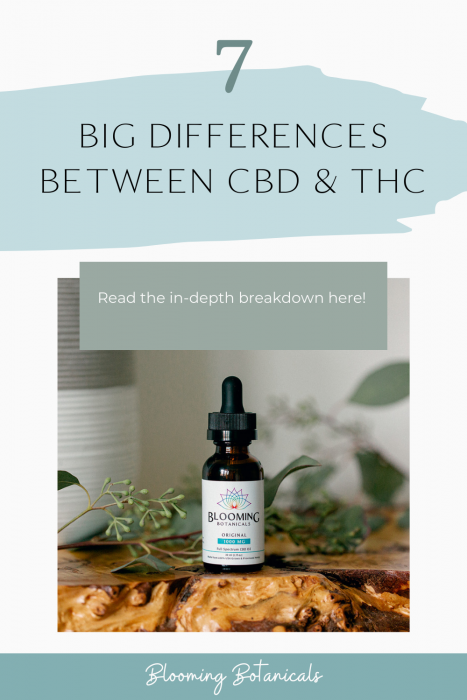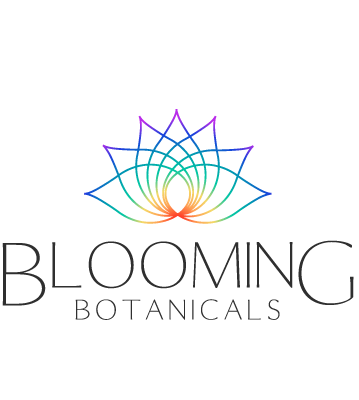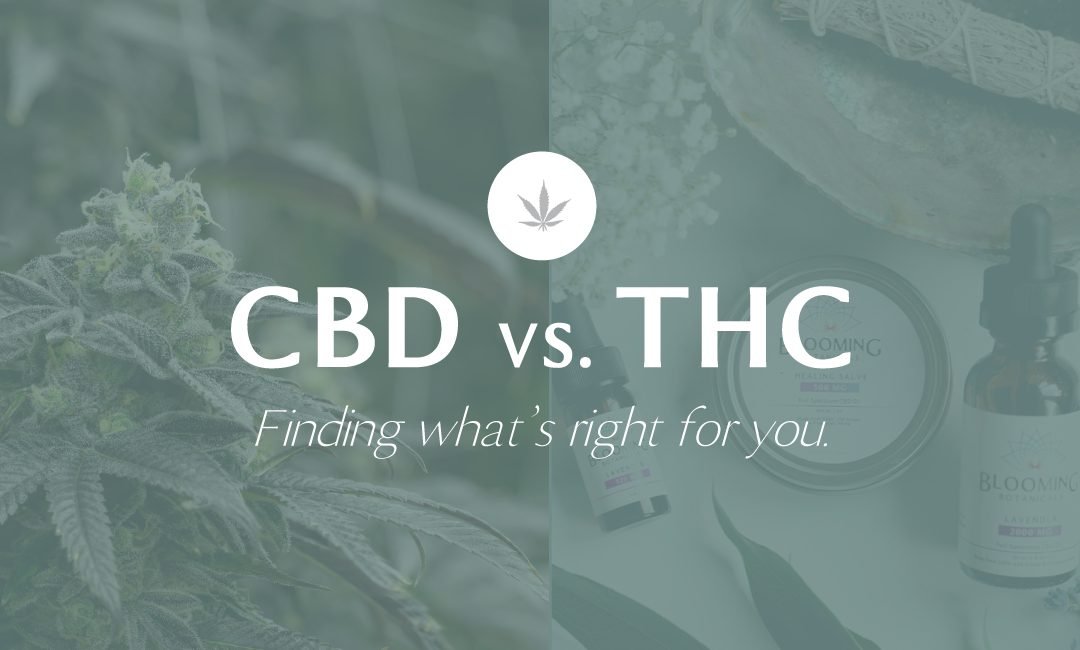There are over 100 cannabinoids in the cannabis plant and among the most popular are cannabidiol (CBD) and tetrahydrocannabinol (THC). These two cannabinoids have been used to improve health and wellbeing, but there are also key differences between CBD and THC to be mindful of.
In this post, we’ll go through these main differences that you should be aware of, but first what are THC and CBD?
What Is THC?
Tetrahydrocannabinol (THC) is the most abundant cannabinoid found in marijuana plants. It is also the main psychoactive compound. You will experience that classic euphoria or high that most people associate with marijuana from consuming THC specifically.
THC products can be consumed via smoking, as edibles, tinctures, and even capsules.
What Is CBD?
Cannabidiol (CBD) is a popular cannabinoid that has recently been drawing interest due to its potential health benefits and absence of negative side effects. It does not lead to a stoned feeling or high. CBD is not mind-altering or hallucinogenic. Legal CBD products are derived from hemp and can be taken as CBD topicals, ingestible oils, and gummies.
The Differences Between THC and CBD
1. Psychoactive Properties
CBD is considered to be non-psychoactive, while THC is psychoactive. This means that when using these cannabinoids, one will cause you to feel high or potentially intoxicated, while the other is non-intoxicating.
When you take either CBD or THC, it affects your brain and activates the CB1 receptors. They are part of the endocannabinoid system (ECS).
THC is intoxicating because it activates CB1 receptors in brain areas responsible for movement, pleasure, memory, thinking, attention, and decision making.
It also activates your brain’s reward system that releases the chemical dopamine. It is a feel-good hormone. Therefore your systems will associate THC with pleasure and there’s a likelihood of you using it in the future.
As for CBD, it doesn’t bind to CB1 receptors. Therefore it won’t lead you to get high. For CBD to bind with CB1 receptors, it needs THC. When THC and CBD are both consumed simultaneously, CBD can bind to these receptors and helps in reducing the psychoactive effects of tetrahydrocannabinol. Because of this, some people find the most benefits from a balance or ratio of CBD to THC, such as 3:1 CBD to THC.
2. Legality
The 2018 Farm Bill states that all CBD products with a THC level of less than 0.3% are federally legal in all 50 US states.
CBD is legal in the United States, but THC is still illegal excluding a few states like Michigan, Colorado and California that have laws allowing the use of THC products.
CBD and THC’s legal and illegal status is constantly changing. Federal law and state law can also vary. Different states have different sets of regulations on the nuances that make CBD products legal, or not.
For example, there might be some state restrictions. For instance, Idaho only allows CBD usage if the product has zero THC, not simply less than .3%.
As for THC and marijuana, it is still classified as a Schedule I substance under the Controlled Substances Act. This indicates that it has a high potential for abuse, but that is slowly changing.
States like Michigan, California, Arizona, New York, and Vermont have all legalized recreational marijuana.
The contradiction in some laws between states and the federal government can lead to confusion. It’s crucial to always be aware of the ever-evolving legal status of both cannabinoids and to review your state’s regulations before purchasing CBD products.
3. Hemp and Marijuana
The cannabis plant has two species, hemp and marijuana. Hemp is characterized by having a high CBD content and low THC content. Marijuana, on the other hand, has high THC content and low CBD content.
CBD products are derived from hemp, while THC products are derived from marijuana.
According to the Farm Bill, it is legal to grow hemp and, hemp-derived products are federally legal as long as they have a THC level of less than 0.3 percent.
Marijuana and THC products are federally illegal, but some states like Washington have laws where it is legal to use.
When using cannabis products, particularly CBD due to its popularity among consumers, it is a good rule of thumb to choose brands that allow access to their Certificate of Analysis (COA). This document shows the chemical composition of your product. Also, the test results of the CBD products must be from an independent accredited third-party laboratory.
A 2017 study showed that in regards to CBD, 42.85% of products were under labeled, 26.19% were over labeled, and 30.95% were accurately labeled. Because CBD is relatively new, regulatory measures and testing are not very thorough or consistent across the board. CBD companies must take it a upon themselves to do be transparent with testing and providing this information to consumers.
A COA empowers consumers and helps ensure that you have a product with the proper quantity of CBD, THC, and ingredients used. Which can then in turn help you measure your perfect dosage, knowing the strength and ingredients are true to the label.
4. Drug Testing
Most athletes and government employees undergo drug tests. Such tests are meant to detect intoxicating or illegal substances such as THC. 100% pure CBD alone usually cannot be detected in such a test.
A 2016 study showed that THC is usually detectable in your system for 1 to 30 days after last use. Therefore if you are to undergo any drug tests, THC and marijuana products aren’t recommended.
Yes, CBD alone most likely won’t show up on a drug test. But when using a full-spectrum CBD, since it has <0.3% trace amounts of THC it is possible it can still be detected.
Therefore a full-spectrum CBD isn’t recommended if you anticipate going through a drug test. As an alternative, you can utilize a broad spectrum CBD or CBD isolate since they are THC-free.
5. Chemical Structure Differences
CBD and THC have the same molecular formula that is 21 carbon atoms, 30 hydrogen atoms, and two (2) oxygen atoms (C21H30O2). But their atoms are arranged differently. Hence you’ll have cannabinoids that are similar molecularly affecting your system/body differently.
Also, THC contains a cyclic ring while CBD has a hydroxyl group.
The chemical similarities of CBD and THC enable these cannabinoids to bind with your body’s endocannabinoid and cannabinoid receptors (CB1 and CB2).
But the fact that CBD is a hydroxyl group means that it interacts with the receptors differently. So it doesn’t bind with CB1 receptors, but with other receptors, offering distinct effects.
The difference in atom arrangement is the main factor in how these cannabinoids affect and interact with your body.
6. Potential Benefits
There is a lot of interest in the potential benefits of CBD, THC, and other cannabinoids. Can they help in alleviating different medical conditions?
The research on these cannabinoids’ health benefits is still limited.
However, there is one FDA-approved CBD drug called Epidiolex. It is used to treat a rare form of epilepsy among children.
What other conditions may CBD provide help?
- Pain and inflammation
- Depression and anxiety
- Nausea
- Irritable bowel syndrome (IBS)
- Arthritis
- Migraines
- Seizures
- Multiple sclerosis
As for tetrahydrocannabinol, there are FDA-approved medications. They are synthetic THC medications called Dronabinol and Nabilone. They are used by HIV/AIDS and cancer patients in treating nausea and appetite stimulation.
Besides helping with nausea and appetite, when using medical marijuana, what are some of the other possible benefits you’ll get from THC? Benefits might include:
- help with sleep difficulties or insomnia
- Chronic pain
- Glaucoma
- Reduce muscle spasms
- Improve mental sharpness
7. Side Effects of THC and CBD
People take THC and CBD products to help them in their health and overall wellbeing. But there are side effects you’ll experience from utilizing these cannabinoids.
For CBD, the side effects are mild or non-existent, depending on the person.
And according to the WHO, CBD is generally well tolerated with a good safety profile. Reported adverse effects may be as a result of drug-drug interactions between CBD and patients’ existing medications.
The side effects of might CBD include:
- Diarrhea
- Nausea
- Drowsiness and fatigue
- Dry mouth
- Reduced appetite
As some states legalize the recreational and medical use of marijuana, it is okay to take THC products in these states. You are essentially using THC to ease certain ailments like chronic pain. But there can be side effects and they might include:
- An increase in heart rate
- Dry and red eyes that can also be itchy
- An increase in anxiety or paranoia
- Dry mouth
- Headaches and dizziness
- Memory loss
- Lowered reaction times
Conclusion
CBD and THC are the most abundant and well known cannabis cannabinoids that draw criticism, controversy, and praise. These cannabinoids are considered by many as revolutionary products for your health when used appropriately. But the lack of research and regulation leads to skepticism.
Although they almost seem similar, the differences between CBD and THC highlight how each cannabinoid may affect you. They might be compounds of the same plant, but their role in health and how they interact with your system reveals why there’s interest in cannabis compounds.
To recap, the main differences between these two cannabinoids are in their psychoactive properties, possible benefits, side effects, chemical structure, legal status, where they are extracted, and if you will fail a drug test when using them.
These two cannabinoids are considered safe and may be beneficial to your health. Each cannabinoid offers distinct benefits, so it’s upon you to choose if either THC or CBD is good for you, or even a mix!
If you seek to use any CBD or THC products, be aware that there is potential to have side effects. Also, if you plan to start taking CBD or THC products, always consult with your doctor to avoid accidental adverse drug/medication interactions. You can also inquire what types of products are most likely to help in alleviating a specific ailment based on your needs.
Try Our Range of CBD Products and Save 15% off on Your First Order


